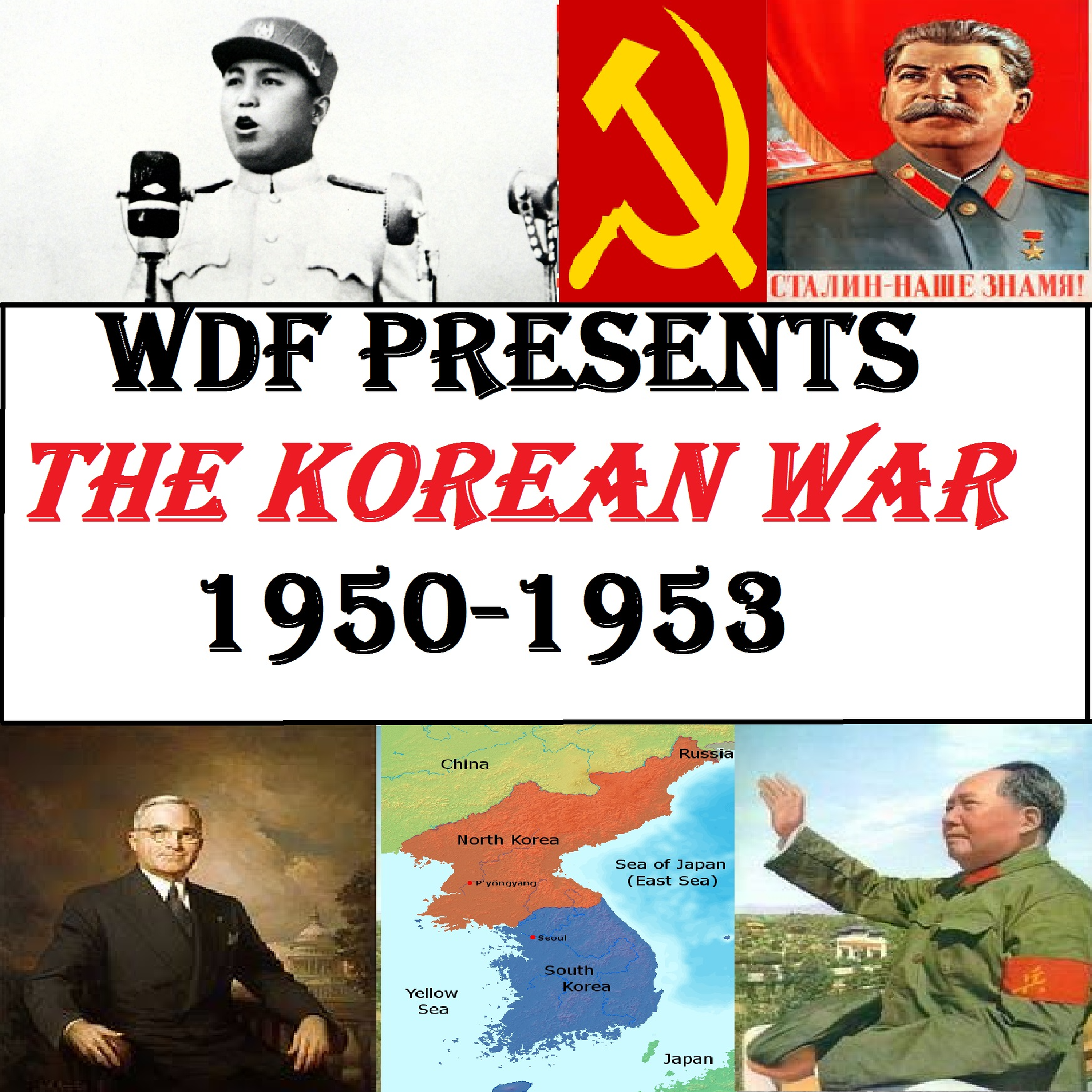Jan 11 2018 35 mins 52
In the final episode of this miniseries, we look at the several crises which accompanied the answering of the German question. The Berlin Blockade, as well as the Prague Coup, provided key pieces of evidence in the Western mind that Stalinism was expanding its reach through the use of intimidation and brute force. Stalin, it was clear, was determined to pose as the champion of his own brand of Soviet, expansionist communism, powered by the Red Army and the threat of force. It was vital in these circumstances that the West provided a foil to such a challenge, but the question remained one of how to do so in a shattered Europe and a de-mobilising American armed force. To the surprise of all, the solution would be provided not in Europe, but thousands of miles away in Korea. Formidable though he seemed, Stalin had his own problems with Yugoslavia. Tito, it emerged, had developed his own cult of personality, and was far less willing to fall in line that his other Eastern neighbours. This, coupled with the creation of NATO in spring 1949, provided Stalin with a great strategic challenge. Europe was evidently not his for the taking, and the soft power of communism was evidently waning with the hardening of the communist party's attitudes towards their peers in the likes of Italy and France. Had Stalin missed the boat, or was he merely scheming to launch an attack somewhere else? Either way, it was clear that Stalin was the face of Soviet power, and that this Georgian native, this paranoid, cunning, ruthless man was the face of all of democracy's problems. Stalin responded to these challenges as only he knew how - with purges, a second reign of terror and show trials on a vast scale, as Eastern Europe's native communist parties were put through the ringer, and Stalin's worst qualities again bubbled to the surface. In our final installment of the Crash Course, these qualities inflict their damage on Stalin's position and reputation, but it was nothing the Kremlin leader could not handle. In the background, Stalin was already turning his attentions further East. He was in regular contact not merely with the Communist leader of China, but also with the most obscure Stalinist vassal in Korea, a man known as Kim Il-sung. Though nobody could know it yet, within the year, it would be Korea, not Europe, that attentions would be focused, with consequences that are felt to this day. *************** Remember history friends, you too can support the podcast and join our lovely community in the process! Facebook Page: https://www.facebook.com/WhenDiplomacyFailsPodcast/ Facebook Group: https://www.facebook.com/groups/1856652614380207/ Twitter: https://twitter.com/wdfpodcast Patreon: www.patreon.com/WhenDiplomacyFails Website: www.wdfpodcast.com Bibliography: www.wdfpodcast.com/source-materials/ See acast.com/privacy for privacy and opt-out information.
